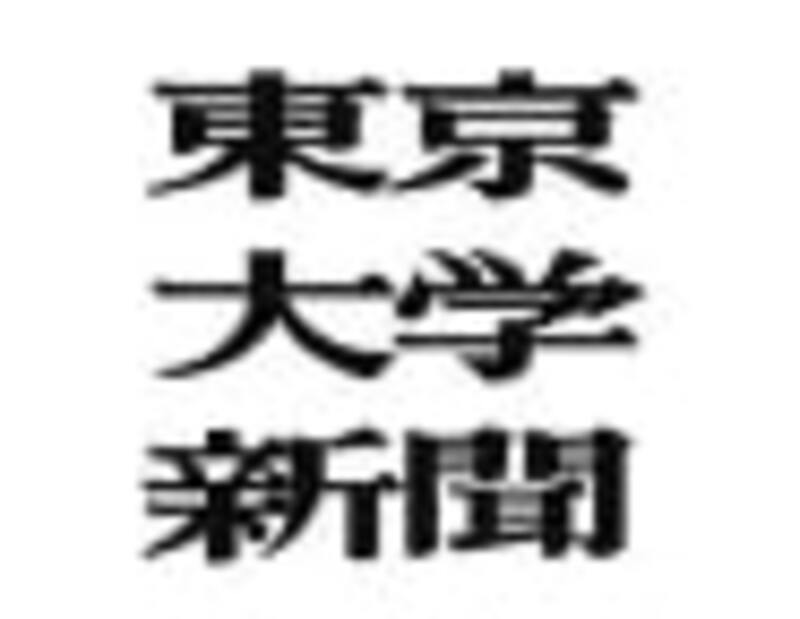
AFPLA (English)
International exchange
Japan China Korea Taiwan exchange
Politics
Tokyo conference
Debate
International issues
Economics
UT-BASE English
2025.3.27
Student organisation hosting a conference once a year for East Asian students with an interest in politics.
目次
Basic Information
| Administration | Mainly run by second-year, but depending on the year third and forth-years could join. |
|---|---|
| Number of Members | Usually 25 |
| Participation Grades | Undergraduate students only |
| Selection Process Info | Interview and personal statement |
| Annual Membership Fee | None in 2021 (*travel fee is student's own expense, but since the convention was hosted online this year there was none) |
| Frequency of Activities | Once a week by division |
| LINE | |
| Official Email Address |
afpla.utokyo[a]gmail.com
(Please send an email with [a] as @.) |
A Look at Their Activities
Overview
■Philosophy, guidelines and history
AFPLA (Asian Future Political Leaders Association) is the organisation that hosts an international conference among East Asian universities (University of Tokyo, Peking University, Fudan University, Seoul National University, National Taiwan University) every summer. The conference was established in 2007 by Peking University and Seoul National University, and since 2011, when the fourth conference was held, the University of Tokyo has officially joined the conference.
The conference covers not only politics, but also history, society, and other topics common to East Asia, and each university holds study sessions to prepare for the summer conference. The 2022 conference was held online, but there are plans to have face-to-face conference in Shanghai for the coming year (2023).
■Activities
Before COVID-19
The main activities are the main conference in August and the preparations for the conference from May to July.
During the preparation period, each division meets about once a week to conduct research and hold discussions in English, and a mid-term report meeting is held at Todai in June to report on progress. In June, they will hold an interim debriefing session within Todai to report on their progress, and at the main conference, students from the five universities will hold several sessions based on the research and discussions conducted by each university's division to shape the final discussions. There will also be opportunities for cross-university members to interact with each other during this conference. From the end of this conference to April of the following year, we will write the report of this conference, launch it, and those who want to be involved in the running of the conference will start preparing for next year's conference and for the next school year to welcome new students.
After COVID-19
Activities in 2020 "with-corona"
・June-September: study sessions
・September-October: Conference within University of Tokyo
・October-December: Event co-hosted by National Taiwan University
Activities in 2022
In 2022, the main conference was held online. However, the students of the University of Tokyo had face-to-face study sessions in each division and participated the conference together.
As events among the University of Tokyo members, interim presentation was held face-to-face in June. Members from each division gathered together and gave presentations about their progress. It was a great opportunity for members to incorporate opinions of members from other division and to get to know each other.
About the conference within University of Tokyo
Due to the outbreak of COVID-19, the main conference in the summer of 2020, which brings 5 universities together, was postponed. As an alternative, members of the University of Tokyo were divided into four groups (Japan, China, Korea, Taiwan) and held a discussion (conference) in the form of a model United Nations. Study sessions leading up to the conference and the day of the conference were held entirely online. This was the first attempt in terms of both content and format, but as a first attempt, it was an activity that provided enough learning to replace the traditional activities.
About the event co-hosted by National Taiwan University
A shortened version of the main conference was held in the autumn on three separate occasions. It was the first time that we interacted with other universities online and in a full-scale activity in the autumn.
Future activities under the pandemic
Activities in 2021 will be carried out as in previous years, except that they will be mainly online. We hope to overcome the challenges of online activities by drawing on last year's experience. Although it is mainly online, we would like to hold face-to-face study sessions and the main conference at the Komaba campus if the environment permits. We are preparing to organize a preliminary exchange between the five universities in May and July before the main conference.
Those who wish to do so can participate in all activities full remote.
In the summer of 2022, the conference will be hosted by the University of Taiwan. All members are looking forward to the trip.
Composition of Membership
Number of Members
Typically five members per division, in total 25
Grade Composition of Members
Most members are in their first or second year.
We have more members in their second, third and fourth years than any other international circle. The selection process is not weighted in favour of the first year, but rather flat.
Each year's event is counted as a term (e.g. a student who joined in 2018-2019 and will join again in 2020 is in the 12th, 13th and 14th terms of AFPLA). It should be noted that once a student has joined, it is not necessary to undergo the selection process again in the following year.
Gender Ratio (Male:Female)
1:1
Period of Entry
Mostly first-year students join, but some second-year students and above also join. Newcomers are only accepted in spring.
Features of membership
Most of the students are L1 and L2 students.
Some L3 students.
We have a small number of science majors, but we welcome students from all backgrounds.
Many students are interested in politics, as theorganisation was established as part of the department of law's third course. There are also students with a strong interest in other fields.
The number of students deciding to take the International Relations course has been increasing recently.
Some students are involved in sports clubs (Shorinji Kempo, cheering club, etc.).
There are many students who are also members of other international circles (HCAP, Kyorondan, TGIF, etc.).
*The fact that students can balance out AFPLA with other circles are one of the outstanding points about AFPLA.
Withdrawal rate
Most of the students are committed until the main conference in August, but after that, it depends on the students.
Structure of Organization
Grade Composition of the Administration Team
The position is held by a candidate system, with members from various grades holding the position. In general, it is the second-year students, but some positions may be filled by third and fourth-year students.
Structure of Administration
In addition to the president, vice-president and five division leaders, we have a liaison officer, a treasurer and a newcomer officer. The latter three positions can be held concurrently by the division leaders.
Frequency of Activities
Usual Activities
Weekly study sessions for each division.
Mid-term debriefing sessions and English discussions are held to promote presentations and discussions.
From the end of the main conference to April of the following year, we will write the report of the main conference, and those who want to be involved in the management of the conference will prepare for next year's conference and the new welcome.
Period before and after the conference
The period immediately before the main conference (around from first to middle of August) will be busy with preparations.
Annual Schedule
April: welcome event
End of April: Selection → Notification of acceptance
Early May: First meeting of division members, start of study sessions*1
May: Preliminary exchange meeting with other universities (tentative)
The afternoon of 12 June: Mid-term report meeting
July: Pre-meeting with other universities (tentative)
5-8 August: Main conference*2
September: Executive handover
February: Leaders' Meeting
There are no plans for the A-semester. Preparation for the next year
1 We will prepare how to discuss the proposals for the mid-term report meeting and the main conference.
2 At the conference, a reception will be held at the five universities.
Recruitment Information
Selection Process
Yes
Eligible Members:
All year groups
Members who actually join:
All year groups
Procedure to join::
Selection process: Application form to be filled in by about April, interview to be held by late April.
Interviews are held in late April. In most years, notification of acceptance is sent by the end of April.
The number of applicants will be taken into account, and the selection process will be based on the AFPLA's criteria.
After being notified of the results of the selection process by email, successful candidates are invited to attend a general meeting.
Insiders' thoughts
○Pros
・There are many warm and friendly people (the barriers between seniors and juniors are low, and the ties among the universities are very strong), and there are people from all walks of life.
・Everyone is tolerant and at home.
・Some of the students are new to international exchange, but they are doing their best.
・This is the only organisation that has channels with 5 universities in Japan, China, Korea and Taiwan.
・By deepening exchanges with excellent students from five universities in Japan, China, Korea and Taiwan, we can gain new perspectives and relativize our own values. Simply put, it is very stimulating.
・Not only academic exchange but also cultural exchange is very active.
・Because we are students of the same generation, we can enjoy free discussions on common topics.
There are a lot of people who can speak English, and it is possible to strengthen their English skills.
There are a certain number of international students coming to the school.
△Cons
・The topics covered are not simple and it is necessary to prepare well for the study sessions.
・There are a lot of returnees, so it is necessary to get used to discussions in English.
・We need to get used to discussing in English.
・It is difficult to coordinate discussions with other universities abroad.
Recruitment Schedule
25 March, 20:00-: UT-BASE Joint Newcomer's Party by Genre (International)
2 April, 12pm - 2pm: Online Circle Information Session by Orientation Committee
4 April and 11 April, 10:00~14:00: Online Joint Newcomer MeetUp by UT-BASE
3 times on both days (10:00~, 10:40~, 11:20~)
5 April and 19 April, after school from 19:00~: AFPLA Independent Information Session
17 and 18 April: Joint International Students' Newcomers' Day
Thank you for reading this article!
We have two thigs to tell you.
1. We announce information about events, programs and campus by our official LINE (only Japanese). Why don't you register?
LINE for students enrolling in 2023
LINE for students enrolling in 2024
LINE for students enrolling in 2025
2.We are accepting questions from here. If you have any questions, please feel free to ask!
関連カテゴリー

For International Students
Circles that actively accept intl. students.

ACADEMIC
academic clubs/circles for international students
関連サークル

Todai Shimbun (東大新聞社)
Todai Shimbun Foundation is an organisation that carries out newspaper production activities in the hands of University of Tokyo students.
International tennis club
University of Tokyo Jadori (Dragon Dance) Association (東京学生龍踊り会)
We performs Nagasaki traditional dance, " Jaodori". Jaodori is a kind of dances, which performers swing the artificial dragon and mimic the movements of a dragon. It originally came from China but has been performed in Nagasaki for about 300 years. Nagasaki has a typical culture which was affected by China, Portugal, and Holland in Edo period. If you have an interest in Nagasaki culture, please contact and join us!




